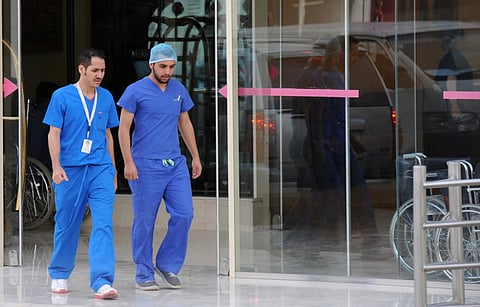Riyadh’s healthcare sector poised for rapid growth amid population boom
Riyadh eyes healthcare boom with 15,000 beds, digital health growth, private sector rise

Dubai: Riyadh is positioning itself as Saudi Arabia’s healthcare powerhouse, driven by rapid population growth, economic diversification, and ambitious government reforms under Vision 2030.
According to a new report from Knight Frank, Riyadh Province — home to 27% of the Kingdom’s population — will see its population rise from 9 million in 2023 to 12.5 million by 2040. This surge, coupled with urban expansion and rising lifestyle-related diseases, is expected to fuel unprecedented demand for healthcare services.
Significant infrastructure gaps
Bed density in Riyadh currently stands at 1.7 per 1,000 people — below both the national (1.9) and global average (2.9) — indicating a need for at least 15,300 additional beds by 2040. Immediate demand hotspots include:
Western Zone: 1,500–2,000 beds by 2030
Eastern & Southern Zones: 1,000–1,500 beds each by 2030
Long-Term Care: 4,000 new beds, requiring around 15 specialised facilities
Private sector momentum
The private sector already accounts for 70% of Riyadh’s outpatient services and is expanding rapidly, with inpatient and outpatient volumes growing more than double those in the public sector between 2015 and 2023. This is being driven by mandatory health insurance for expatriates and rising coverage among Saudi nationals.
Emerging growth areas
Beyond hospitals, Riyadh is investing heavily in:
Digital Health: The SAR 698 million market is forecast to grow 25% annually, led by initiatives such as the Seha Virtual Hospital — the largest in the world.
Life Sciences: Efforts are underway to boost domestic pharmaceutical, biotech, and medtech capabilities to strengthen healthcare resilience.
Government-led opportunities
Public-Private Partnerships (PPPs) are a core strategy for healthcare expansion, with planned projects in maternity hospitals, primary care, dialysis services, and rehabilitation centres.
With mega-projects like New Murabba, King Salman Park, and Diriyah attracting millions, Riyadh is aligning healthcare development with new residential and commercial hubs. This creates openings for advanced diagnostics, outpatient centres, and retail clinics embedded in neighbourhoods.
Bottom Line? Riyadh’s healthcare transformation is not just about meeting demand — it’s about redefining service delivery with innovation, accessibility, and investor-led growth. For private sector players, the message is clear: the time to enter this market is now.
Sign up for the Daily Briefing
Get the latest news and updates straight to your inbox




